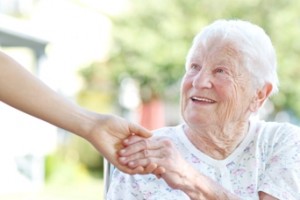There is a debate that is almost as old as social care itself, that is again raising its head on social media. The question is this: what term should be used to denote those people receiving a care service?
There are many opinions and, in some cases, heated arguments about how we, as providers, can show our respect to the person and yet find a term that recognises that the individual is in receipt of a care service.

The term we have used thus far, as a private provider, is ‘client’. The logic goes that the individual pays for a care service and, we thought, denoted a term of respect. After all, some of the most professionalised human services use the term, such as the legal profession, for example.
However, the point raised by a particularly well regarded blogger (well thought of by me, certainly) is that he detests the term when applied to him. He prefers ‘person with MND’ (Motor Neurone Disease) as it puts ‘person’ first. Completely laudable and I agree wholeheartedly with his reasoning.
The difficulty with this though, is that it doesn’t take note of the relationship between care service provider and the person receiving the service. On a practical level, how would you put that into a sentence such as “Mr Smith is a client of mine”? Does acknowledgement of the disease override the need to denote the relationship? If so, how *would* you then denote the relationship?
Questions, questions.
We refuse to use the term ‘service user’ as it doesn’t acknowledge the person, just the need. Whilst the need is important, it isn’t the sum total of the individual’s life-history, experiences and feelings.
Similarly, ‘customer’ is all about the transaction and says nothing about the individual as a person.
We also don’t use the term ‘patient’ as it suggests a person to whom something is done, rather than a person supported to do something. Plus of course, we are non-medical and it would seem inappropriate.
Answers?
I asked one of my, um, clients living with MND what he thought. I respect his opinion – although his physical abilities require support, his mental acumen is very much evidence in our daily exchanges. His thinking is that there might need to be two terms: Client and Caree. The first reflects the person purchasing the service (client) and the second is reserved for the person receiving a care service (caree). In many cases, this may be the same person, but it distinguishes the difference in relationship.
I’m not sure. The logic is good, but ‘caree’ doesn’t quite do it for me…
What do you think? What term would you prefer? Your views are very much appreciated.

Leave a Reply